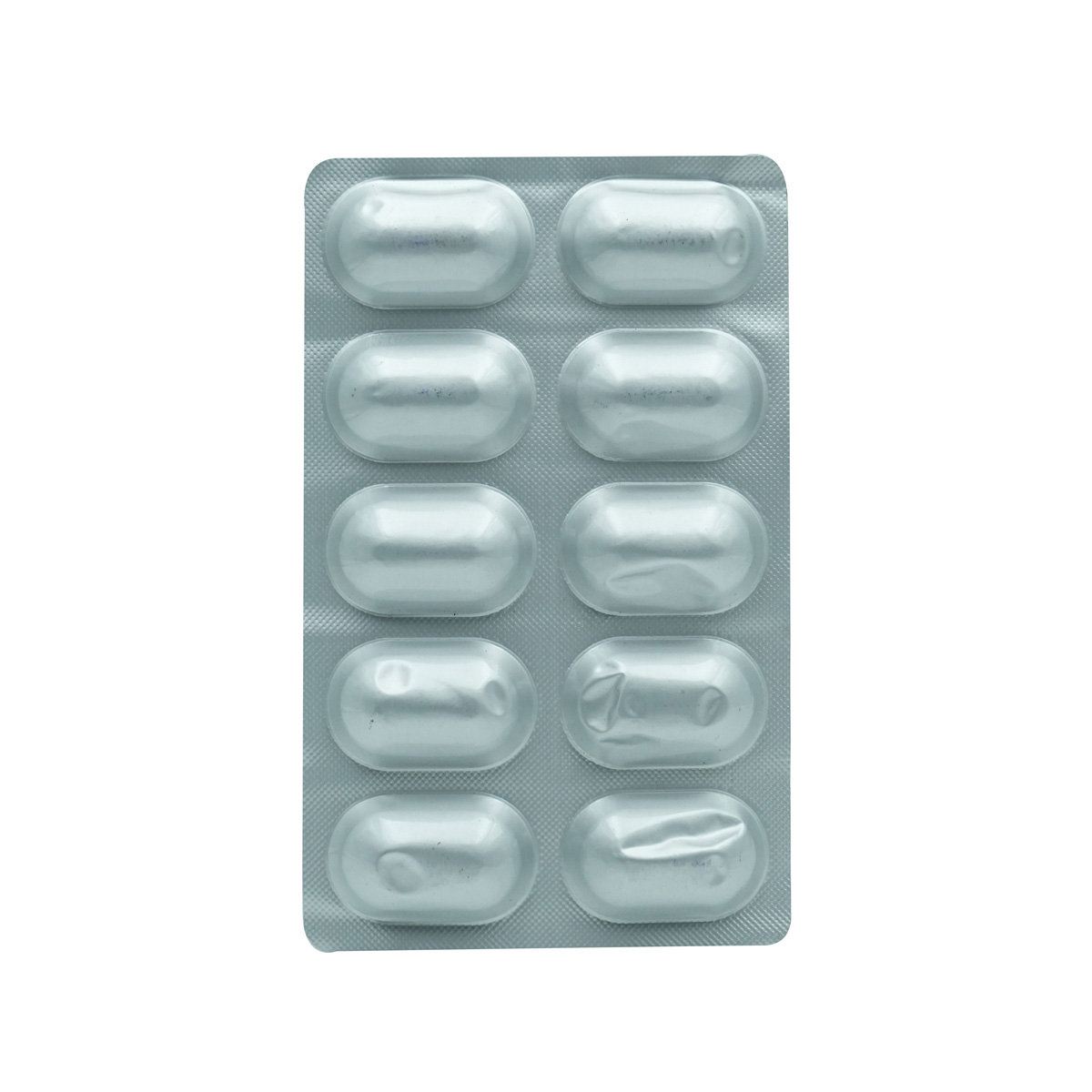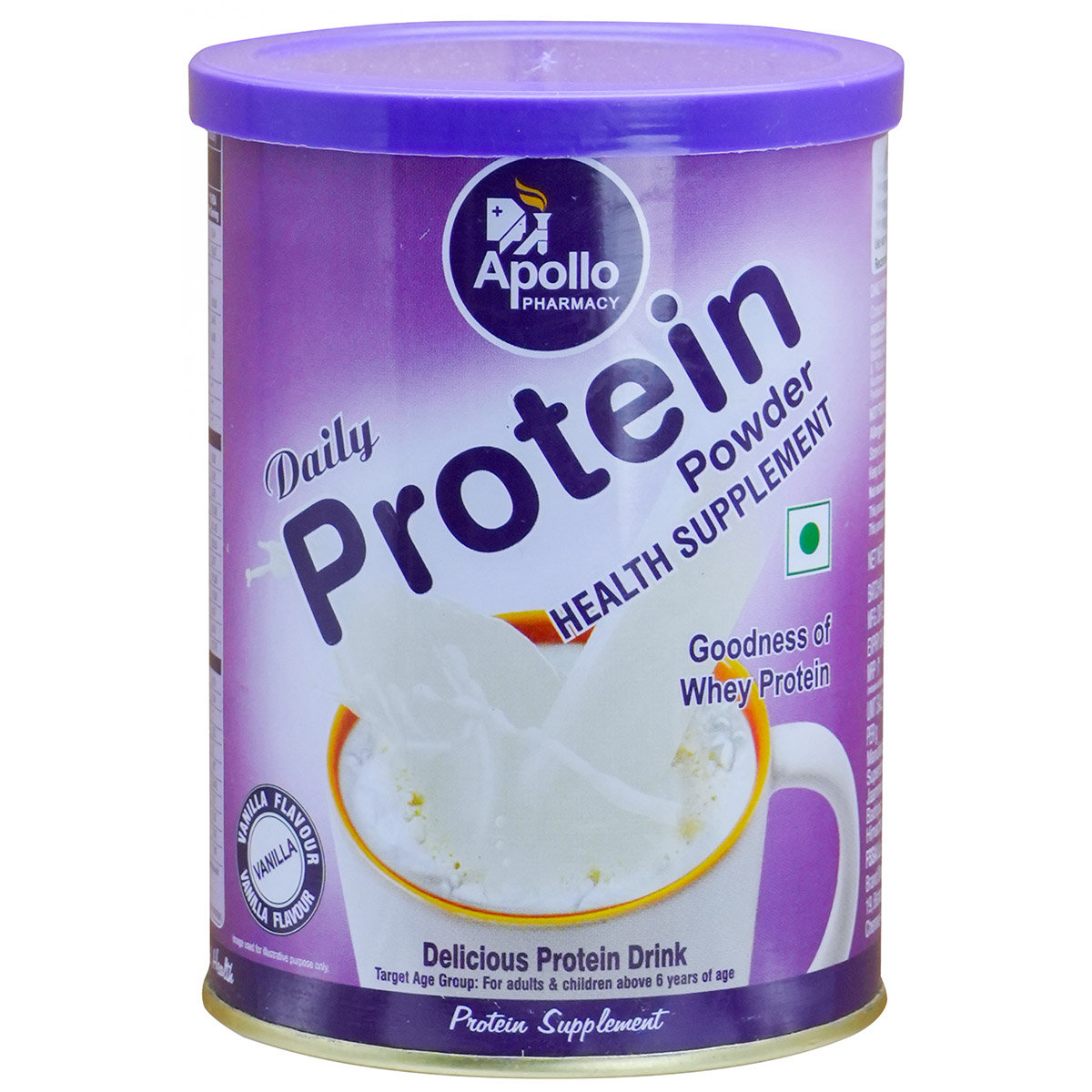Met Pco Care Tablet 10's
MRP ₹325
(Inclusive of all Taxes)
₹48.8 Cashback (15%)
Know Your Delivery Time
Provide Delivery Location

Secure Payment

India's Most Trusted Pharmacy

Genuine Products
Manufacturer/Marketer :
Consume Type :
Expires on or after :
Return Policy :
About Met Pco Care Tablet
Met Pco Care Tablet is a combination medicine indicated for the treatment of polycystic ovarian syndrome (PCOS). It also helps correct the hormonal imbalance and menstrual cycle to achieve ovulation.
Met Pco Care Tablet enhances the body’s response to insulin and lowers high homocysteine levels. It also helps improve hormonal balance, follicular development, and egg quality, regulate menstruation, and restore ovulation in women.
In some cases, you may experience side effects, such as nausea, vomiting, diarrhoea, stomach pain, and loss of appetite. Talk to your doctor if any of these side effects persist or worsen.
Let your doctor know if you are taking prescription/non-prescription drugs or herbal products before starting Met Pco Care Tablet . If you are known to be allergic to Met Pco Care Tablet or its inactive components, please inform your doctor.
Uses of Met Pco Care Tablet
Met Pco Care Tablet is used in the treatment of Polycystic ovarian syndrome (PCOS). The detailed uses of Met Pco Care Tablet are as follows:
- Treat polycystic ovarian syndrome (PCOS): Met Pco Care Tablet is primarily used to manage PCOS by improving insulin sensitivity, correcting hormonal imbalances, and restoring regular ovulation and menstrual cycles.
- Enhance egg quality and support fertility: Met Pco Care Tablet promotes follicular development and improves the quality of oocytes, increasing the chances of conception in women with PCOS or insulin resistance.
- Regulate blood sugar and improve metabolic health: With metformin hydrochloride and inositols, Met Pco Care Tablet helps lower blood glucose levels and reduce insulin resistance, which is crucial for managing PCOS and preventing type 2 diabetes.

Have a query?
Directions for Use
- Met Pco Care Tablet can be taken with or without food, as advised by your doctor.
- Adhere to your doctor's guidance regarding the dosage and timing of this medication for optimal effectiveness.
- Swallow Met Pco Care Tablet as a whole with a glass of water.
- Do not crush, chew, or break it.
Key Benefits
- Met Pco Care Tablet is primarily used in the treatment of Polycystic Ovarian Syndrome (PCOS).
- It contains a combination of D-chiro-inositol, Myo-inositol, Metformin hydrochloride, L-methylfolate calcium, and Mecobalamin, which work together to restore hormonal balance and improve reproductive health in women with PCOS.
- Myo-inositol and D-chiro-inositol help improve ovarian function, enhance egg quality, regulate menstrual cycles, and restore ovulation.
- Metformin hydrochloride enhances the body’s response to insulin, helps lower insulin resistance, and controls blood sugar levels, which are often elevated in PCOS.
- L-methylfolate calcium helps in reducing high homocysteine levels, supporting overall hormonal and metabolic balance.
- Mecobalamin (Vitamin B12) supports nerve health, improves energy metabolism, and contributes to better follicular development.
- Met Pco Care Tablet helps in regulating menstruation, restoring ovulation, improving fertility, reducing insulin resistance, and supporting hormonal balance, thereby managing PCOS effectively.
How Met Pco Care Tablet Works
Storage
- Inform Your Doctor: Notify your doctor immediately about your diarrhoea symptoms. This allows them to adjust your medication or provide guidance on managing side effects.
- Stay Hydrated: Drink plenty of fluids to replace lost water and electrolytes. Choose water, clear broth, and electrolyte-rich drinks. Avoid carbonated or caffeinated beverages to effectively rehydrate your body.
- Follow a Bland Diet: Eat easy-to-digest foods to help firm up your stool and settle your stomach. Try incorporating bananas, rice, applesauce, toast, plain crackers, and boiled vegetables into your diet.
- Avoid Trigger Foods: Steer clear of foods that can worsen diarrhoea, such as spicy, fatty, or greasy foods, high-fibre foods, and dairy products (especially if you're lactose intolerant).
- Practice Good Hygiene: Maintain good hygiene to prevent the spread of infection. To stay healthy, wash your hands frequently, clean and disinfect surfaces regularly, and avoid exchanging personal belongings with others.
- Take Anti-Diarrheal Medications: If your doctor advises, anti-diarrheal medications such as loperamide might help manage diarrhoea symptoms. Always follow your doctor's directions.
- Keep track of your diarrhoea symptoms. If they don't get better or worse or are accompanied by severe stomach pain, blood, or dehydration signs (like extreme thirst or dark urine), seek medical help.
- Inform your doctor about the nausea and discuss possible alternatives to the medication or adjustments to the dosage.
- Divide your daily food intake into smaller, more frequent meals to reduce nausea.
- Opt for bland, easily digestible foods like crackers, toast, plain rice, bananas, and applesauce.
- Avoid certain foods that can trigger nausea, such as fatty, greasy, spicy, and smelly foods.
- Drink plenty of fluids, such as water, clear broth, or electrolyte-rich beverages like coconut water or sports drinks.
- Use ginger (tea, ale, or candies) to help relieve nausea.
- Get adequate rest and also avoid strenuous activities that can worsen nausea.
- Talk to your doctor about taking anti-nausea medication if your nausea is severe.
- Record when your nausea occurs, what triggers it, and what provides relief to help you identify patterns and manage your symptoms more effectively.
- Preventing Vomiting (Before it Happens)
- Take medication exactly as prescribed by your doctor. This can help minimize side effects, including vomiting.
- Having a small meal before taking your medication can help reduce nausea and vomiting.
- Talk to your doctor about taking anti-nausea medication along with your prescribed medication.
- Managing Vomiting (If it Happens)
- Try taking ginger in the form of tea, ale, or candy to help alleviate nausea and vomiting.
- What to Do if Vomiting Persists
- Consult your doctor if vomiting continues or worsens, consult the doctor for guidance on adjusting your medication or additional treatment.
- Tell your doctor about your GAS symptoms. They may change your medication regimen or prescribe additional drugs to help you manage them.
- To manage GAS symptoms, eat a balanced diet of fibre, vegetables, and fruits.
- Drink enough water throughout the day to avoid constipation and treat GAS symptoms.
- Regular exercise like yoga and walking may help stimulate digestion and alleviate GAS symptoms.
- Take probiotics only if your doctor advises, as they may help alleviate GAS symptoms by promoting gut health.
- Take medication for GAS symptoms only if your doctor advises, as certain medications can interact with your existing prescriptions or worsen symptoms.
- If symptoms persist, worsen, or are accompanied by severe abdominal pain, vomiting, or bleeding, seek immediate medical attention.
- If you experience low blood sugar levels, inform your doctor. They will assess the severity and make recommendations for the next actions.
- Your doctor will assess your symptoms, blood sugar levels, and overall health before recommending the best course of action, which may include treatment, lifestyle modifications, or prescription adjustments.
- Follow your doctor's instructions carefully to manage the episode and adjust your treatment plan.
- Make medication adjustments as recommended by your doctor to prevent future episodes.
- Implement diet and lifestyle modifications as your doctor advises to manage low blood sugar levels.
- Monitor your blood sugar levels closely for patterns and changes.
- Track your progress by recording your blood sugar levels, food intake, and physical activity.
- Seek further guidance from your doctor if symptoms persist or worsen so that your treatment plan can be revised.
- Take medications with food (if recommended): It can help prevent stomach distress and indigestion.
- Eat smaller, more frequent meals: Divide daily food intake into smaller, more frequent meals to ease digestion.
- Avoid trigger foods: Identify and avoid foods that trigger indigestion, such as spicy, fatty, or acidic foods.
- Stay upright after eating: Sit or stand upright for at least 1-2 hours after eating to prevent stomach acid from flowing into the oesophagus.
- Avoid carbonated drinks: Avoid drinking carbonated beverages, such as soda or beer, which can worsen indigestion.
- Manage stress: To alleviate indigestion, engage in stress-reducing activities like deep breathing exercises or meditation.
- Consult a doctor if needed: If indigestion worsens or persists, consult a healthcare professional to adjust the medication regimen or explore alternative treatments.
- Drink water or other clear fluids.
- To prevent worsening of pain, limit intake of tea, coffee, or alcohol.
- Include bland foods like rice, toast, crackers, and rice in your diet.
- Avoid lying down immediately after eating as it may cause indigestion or heartburn.
- Avoid acidic and spicy food as it may cause indigestion.
What if I have taken an overdose of Met Pco Care Tablet
Drug Warnings
- Do not take Met Pco Care Tablet if you are allergic to any of its contents.
- Inform your doctor before taking Met Pco Care Tablet if you have bipolar disorder, diabetes, heart, kidney or liver problems.
- Consult your doctor before taking Met Pco Care Tablet if you are pregnant or breastfeeding.
- Let your doctor know if you are taking prescription/non-prescription drugs or herbal products before starting Met Pco Care Tablet .
Drug-Drug Interactions
Drug-Drug Interactions
Login/Sign Up
Co-administration of Iopanoic acid with Met Pco Care Tablet can increase the risk of side effects.
How to manage the interaction:
Taking Met Pco Care Tablet with Iopanoic acid is not recommended, please consult your doctor before taking it.
Co-administration of Iohexol with Met Pco Care Tablet can increase the risk of side effects.
How to manage the interaction:
Taking Met Pco Care Tablet with Iohexol is generally avoided as it can result in an interaction, please consult your doctor before taking it.
Co-administration of Iopromide with Met Pco Care Tablet can increase the risk of lactic acidosis.
How to manage the interaction:
Taking Iopromide with Met Pco Care Tablet is not recommended, please consult a doctor before taking it. Do not discontinue the medication without consulting a doctor.
Co-administration of Iodixanol with Met Pco Care Tablet can increase the risk of side effects.
How to manage the interaction:
Taking Met Pco Care Tablet with Iodixanol is not recommended, please consult a doctor before taking it. Do not discontinue the medications without consulting a doctor.
Co-administration of Iopamidol with Met Pco Care Tablet can increase the risk of side effects.
How to manage the interaction:
Taking Met Pco Care Tablet with Iopamidol is not recommended, please consult a doctor before taking it. Do not discontinue the medications without consulting a doctor.
Co-administration of Ioglycamic acid with Met Pco Care Tablet can increase the risk of side effects.
How to manage the interaction:
Taking Met Pco Care Tablet with Ioglycamic acid is generally avoided as it can result in an interaction, please consult your doctor before taking it.
Co-administration of Met Pco Care Tablet and Iocarmic acid can increase the risk of lactic acidosis (when the body produces too much lactic acid).
How to manage the interaction:
Taking Met Pco Care Tablet with Iocarmic acid is generally avoided as it can result in an interaction. please consult your doctor before taking it.
Co-administration of Iomeprol with Met Pco Care Tablet can increase the risk of side effects.
How to manage the interaction:
Taking Met Pco Care Tablet with Iomeprol is not recommended, please consult a doctor before taking it. Do not discontinue the medications without consulting a doctor.
Co-administration of Iotroxic acid with Met Pco Care Tablet can increase the risk of side effects.
How to manage the interaction:
Taking Met Pco Care Tablet with Iotroxic acid is not recommended, please consult your doctor before taking it.
Co-administration of Ioglicic acid with Met Pco Care Tablet can increase the risk of side effects.
How to manage the interaction:
Taking Met Pco Care Tablet with Ioglicic acid is generally avoided as it can result in an interaction, please consult your doctor before taking it.
Drug-Food Interactions
Drug-Food Interactions
Login/Sign Up
Diet & Lifestyle Advise
- Follow a well-balanced diet.
- Exercising regularly helps improve overall health.
- Rest well, and get plenty of sleep.
- Avoid smoking and alcohol consumption.
- Meditation and yoga can help lower stress.
- Avoid processed and fried food.
- Include high-fibre foods, fatty fish, broccoli, dark red fruits, and leafy vegetables.
Habit Forming
Therapeutic Class
All Substitutes & Brand Comparisons
RX
Out of StockOvalife Met Tablet
Macleods Pharmaceuticals Ltd
₹190
(₹17.1 per unit)
41% CHEAPERRX
Metmaa Tablet 10's
Maaah Pharmaceuticals Pvt Ltd
₹257
(₹23.14 per unit)
20% CHEAPERRX
Cystarx M Tablet 10's
Pharmanova Specialties Pvt Ltd
₹276.5
(₹24.89 per unit)
14% CHEAPER
Alcohol
Safe if prescribed
Avoid or limit alcohol consumption while taking Met Pco Care Tablet .
Pregnancy
Consult your doctor
Please consult your doctor before taking Met Pco Care Tablet if you are pregnant or if you have any concerns regarding this; your doctor will prescribe only if the benefits outweigh the risks.
Breast Feeding
Consult your doctor
Consult your doctor before taking Met Pco Care Tablet ; your doctor will decide whether Met Pco Care Tablet can be taken by breastfeeding mothers or not.
Driving
Safe if prescribed
It is not known if Met Pco Care Tablet alters your ability to drive. Drive or operate machinery only if you are alert.
Liver
Consult your doctor
Limited data is available regarding the usage of Met Pco Care Tablet in patients with liver impairment. Please consult your doctor before taking Met Pco Care Tablet if you have a liver impairment or any concerns regarding this.
Kidney
Consult your doctor
Limited data is available regarding the usage of Met Pco Care Tablet in patients with kidney impairment. Please consult your doctor before taking Met Pco Care Tablet if you have kidney impairment or any concerns regarding this.
Children
Safe if prescribed
Limited information is available regarding the usage of Met Pco Care Tablet in children. Please consult your doctor if you have any concerns.
Heart
Inform your doctor if you have any existing heart disease. Your doctor will recommend this medicine only if the potential benefits outweigh the risks.
Geriatrics
Consult your doctor
Limited information is available regarding the usage of Met Pco Care Tablet in elders, so please consult a doctor if you have any concerns.
FAQs
Met Pco Care Tablet is used to treat polycystic ovarian syndrome (PCOS). It also helps correct the hormonal imbalance and menstrual cycle to achieve ovulation.
Met Pco Care Tablet enhances the body's response to insulin and lowers high homocysteine levels. It also helps improve hormonal balance and follicular development, egg quality, menstruation regulation, and ovulation in women. Thus, Met Pco Care Tablet helps treat PCOS.
To treat your condition effectively, continue taking Met Pco Care Tablet for as long as your doctor has prescribed it. Do not be reluctant to speak with your doctor if you experience any difficulty while taking Met Pco Care Tablet .
Consult your doctor before taking Met Pco Care Tablet if you are diabetic, as Met Pco Care Tablet contains metformin hydrochloride. Taking Met Pco Care Tablet along with anti-diabetic medicines might lower the blood glucose levels than normal. Regular monitoring of blood sugar levels whilst taking Met Pco Care Tablet is advised.
Diarrhoea could be a side-effect of Met Pco Care Tablet . Eat non-spicy meals and drink plenty of fluids if you experience diarrhoea. Consult a doctor if you have severe diarrhoea.
If you miss a dose, try to take it as soon as you remember. However, if it is time for the scheduled dose, skip the missed dose and take the scheduled dose instead. Avoid taking double doses as it might cause overdose or unpleasant side effects.
Met Pco Care Tablet can be taken with or without food as advised by the doctor. Take it at the same time daily to help you remember taking the medicine.
While taking Met Pco Care Tablet , maintain a healthy lifestyle by eating a balanced diet and exercising regularly. Get enough sleep, manage stress, and stay hydrated. Limit alcohol intake and quit smoking to maximize the medication's effectiveness.
Please consult your doctor before taking Met Pco Care Tablet if you are pregnant or if you have any concerns regarding this; your doctor will recommend Met Pco Care Tablet only if the benefits outweigh the risks.
No, do not crush or chew Met Pco Care Tablet . Swallow it as a whole with a glass of water.
The common side effects of Met Pco Care Tablet may include nausea, vomiting, diarrhoea, stomach pain, and loss of appetite. Most of these side effects do not require medical attention and will resolve gradually over time. However, you are advised to talk to your doctor if you experience these side effects persistently.
No, it is not recommended to take Met Pco Care Tablet if you are allergic to any of its components. Please consult your doctor before using Met Pco Care Tablet if you are allergic to any of its components.
Let the doctor know if you are taking other medicines while on treatment with Met Pco Care Tablet , particularly if you are taking anti-diabetics, diuretics, hormones, or antibiotics.
Met Pco Care Tablet should be stored in a cool and dry place away from the sunlight. Keep it out of sight and reach of children.
Country of origin
Manufacturer/Marketer address
Disclaimer
Author Details
We provide you with authentic, trustworthy and relevant information
Recommended for a 30-day course: 2 Strips












